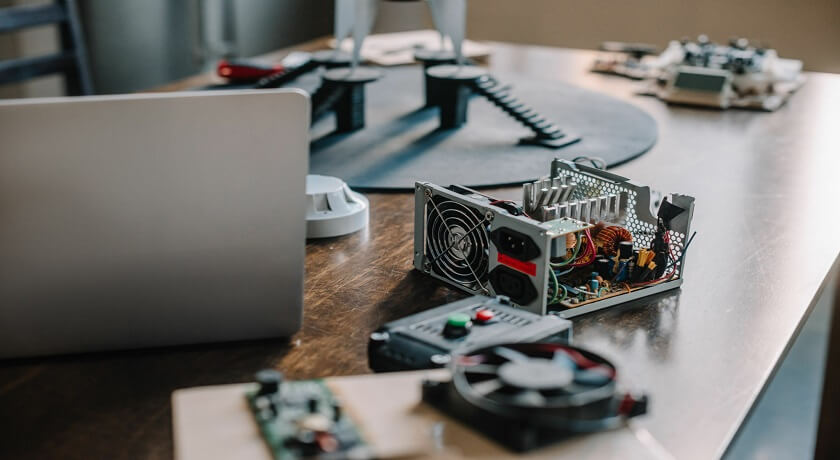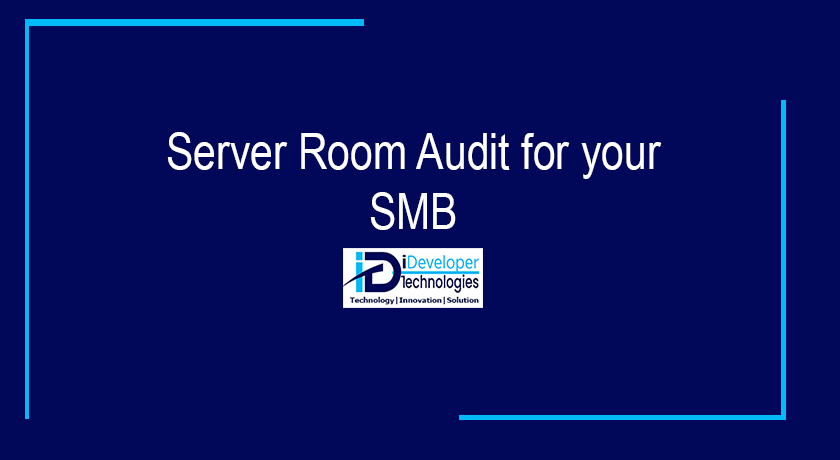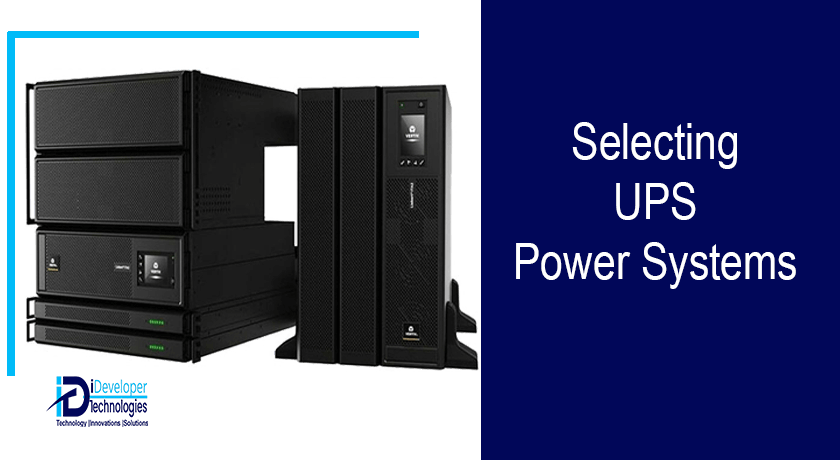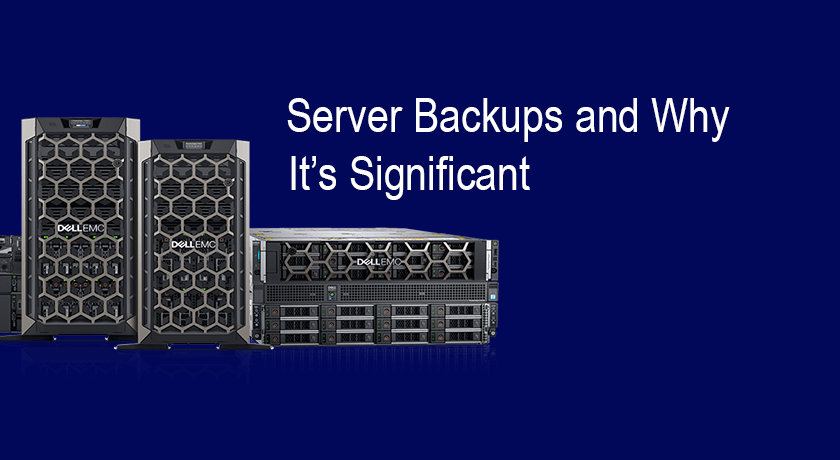A server room is the nerve center of modern business operations in Kenya, as result,…

23 Computer repair and maintenance checklist for small businesses in Kenya
In today’s digital age, small businesses in Kenya heavily rely on computers to streamline their operations, increase efficiency, and stay competitive. However, computer issues can disrupt your daily workflow and lead to costly downtime. To keep your business running smoothly, it’s essential to have a robust computer repair and maintenance checklist in place for your business in Kenya
When properly cared for, computers can survive five to eight years, but if a user doesn’t take precautions to secure the hardware, that lifespan can be quickly reduced. This explains the significance of computer repair in kenya and upkeep.
Computer care includes routine cleanings, hard drive updates, and virus protection to maintain your laptops and PCs in good working order. By doing this, you may increase the longevity of your gadgets and improve the security of your web browsing.
In this blog, we will discuss 25 critical checkpoints that every small business in Kenya should consider to ensure the health and longevity of their computer systems.
#1.Using compressed air, dust your keyboard and
The typical desktop and keyboard was determined to be dirtier than a toilet seat, according to studies. Because of this, keeping your keyboard clean (and lowering health hazards) can be achieved by dusting it off at least once a week. Avoid soaking your keyboard in water while cleaning it; instead, use a wet, lint-free cloth. Use a pressurized air canister for reaches that are more difficult to reach, like the spaces between keyboard keys.
#2. Clean your monitor.
On your display, stains and fingerprints may emerge on a frequent basis. Wipe down your monitor once a week with a dry, lint-free cloth to maintain a clear and crisp screen picture. Wipe slowly and gently; using too much pressure can harm your device.
When you buy a computer, it frequently comes with a microfiber cleaning cloth. For best cleaning results, use this cloth or get one comparable to it.
#3. Dust and debris from your mouse should be removed.
Similar to your keyboard, your mouse need routine dusting in order to function effectively. Turn your mouse upside down and unplug it to accomplish this. After that, you should take off the bottom panel and use a lint-free cloth to wipe the ball.
For a more thorough cleaning, dab the cloth with rubbing alcohol. Reassembling the mouse requires letting the ball dry.
#4. Make a complete system cleaning.
During your scheduled computer repair and maintenance in Kenya, You should thoroughly clean your complete hardware system every three to six months. There are several methods for doing this, one of which is using a computer vacuum. Before disconnecting your device and starting the cleaning process, make sure to save and close any open files.
After that, you can unscrew the casing to see the interior. Avoid using a vacuum inside the computer. To prevent damage, utilize the interior pressurized air canister from step #1 instead.
Disassembly for a laptop will differ from that of a desktop computer. Prior to starting to disassemble your gadget, make sure you have read and understood the instructions that came with it.
#5. Sift through the hard drive.
Did you know that in terms of computer performance, the disk is the weakest link? This is the reason it’s crucial to defragment your hard drive once a month.
Rearranging the data on your hard drive to facilitate faster file access is called defragging. On your device, it divides a file into smaller pieces. Though every computer is unique, the System and Security tab in the Control Panel is typically where you can find defragment functions.
#6. data backups
You should make a backup of your drive at least once daily. You can do this every day to make sure your files are safely stored if you’re working on a significant project. By backing up your data, you can protect sensitive files in case your computer crashes or your hard drive fails. Great data backup solutions should be automated to ensure efficiency
#7. Set up your startup.
It’s a good idea to check in on the programs that launch automatically on startup. The computer may become slower as a result of these apps. You should be able to choose which apps run by going to the Startup from the Settings tab.
#8. Execute disk cleanup.
One great computer repair activity in Kenya is performing a disk cleanup, you can make disk space on your hard drive available. This will remove large attachments, extra language files, temporary files, and more.
#9. Update your computer significantly
Checking for significant computer updates at least once a month will help to ensure that your apps are operating securely and effectively. Since these updates close important security holes and eliminate superfluous features, they may be essential for long-term health. It’s possible that you can change your configuration to enable automatic updates.
Upgrade your antivirus program and Work on your organization Endpoint Security Solutions needs and stability
You should install any available antivirus software update right away in order to get rid of malware. These updates either add brand-new software features or enhance already-existing ones. In general, you can configure your system to update automatically, but you should complete the update as soon as your existing antivirus software notifies you to.
#10. Frequently change your passwords
Hackers can easily obtain access to your device by stealing your login credentials through a cyberattack. Once they get access to your device, they can view private data like bank account details and spam emails, among other things.
Consider Our Password Security Solutions in Kenya for SMEs and Enterprises
Experts once advised changing passwords once a month, but doing so was putting users at risk and creating additional difficulties. Maintaining your security can be easily achieved by changing your password four times a year.
#11. Look for updates to the firmware
Your computer’s firmware is a small piece of software that maintains the hardware operating correctly. Although you can manually check for firmware updates on many devices, these updates are sometimes included in major computer updates.
#12. Finished updating signatures
In addition to software updates, you should perform signature updates to maintain the proper operation of your antivirus program. This guarantees that new viruses won’t infect your device. Although many programs let you install these updates automatically, you should update.
#13. Take into account parental controls.
Set up parental controls if you have children at home or other people who have access to your device to prevent software from being downloaded without your permission. To download certain files and software to your device, these controls will require a password from an administrator.
#14. Place similar files in folders.
Keeping files on your desktop can cause your computer to slow down. Instead, group similar files into folders that are easy to find. When it comes time to delete unnecessary items, this will also help to streamline the cleaning process.
#15. Delete any programs that are no longer in use.
Remove unnecessary programs from your device to free up memory space. If you sort your programs by size, you can see which ones consume the most memory and make your decision from there.
#16. Empty the Recycling Bin
When you or another user deletes a file, it is transferred to the Recycling Bin. This gives you one last chance to recover a deleted file, but it can also clog up hard drive space if you don’t clear it out on a regular basis. Once a month, go through the Recycling Bin and delete any files that may have been deleted inadvertently.
#17. Get rid of any temporary internet files.
Remove temporary internet files and clear your cache to speed up your system. Each browser has a unique method for removing these cookies.
#18. Upload files to the cloud
Cloud storage Solutions providers in Kenya, enable you to store gigabytes of data without depleting your hard drive’s memory. Even better, you can share your files across multiple devices. Transfer files you download throughout the day to cloud storage to free up space on your hard drive.
#19. Keep your device from overheating.
Set up your computer in a well-ventilated area of your office or home, with two inches of empty space on either side. Allowing your machine to breathe helps to prevent overheating, extending the life of your device. Stacks of paper and other items on your computer can also cause it to overheat, so keep your desk area organized and clutter-free.
#20. Keep your cords in order.
Cable clutter attracts dust and is easily damaged. Cable stations and other cord organizers can assist you in organizing your space. It will also save you time and stress the next time you plug your computer out.
#21. Avoid overcharging your device.
If you’re working on a laptop, it’s tempting to leave the battery charging all night. While it will not harm the device, unplugging it once it reaches 100% is one of the best ways to keep the battery charged for an extended period of time. If you won’t be using the device for a month or more, you should remove the battery entirely to help extend its shelf life.
#22. Food and beverages should be kept separate.
A device can be destroyed with just one can of soda. As tempting as a cup of coffee while checking your morning emails may be, avoid eating or drinking near your computer to avoid spillage.
#23. While browsing, stay away from spam.
If you receive an unusual email or an unexpected popup while browsing, resist the urge to open it. Malware scams can severely damage your device and jeopardize your files and privacy. Consider Investing in Great Email Security Solutions in Kenya
Conclusion:
In the ever-evolving world of technology, small businesses must prioritize computer repair and maintenance in kenya to stay competitive and secure. By following these 25 essential checklists, you can ensure that your computer systems run smoothly, minimize downtime, and protect your business from data loss and security breaches. Regular attention to these critical tasks will lead to more efficient operations and a safer digital environment for your small business.



